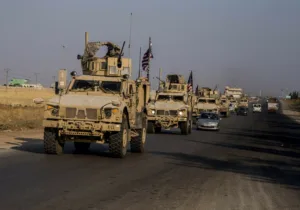The following lecture was recorded during Providence’s 2017 Christianity and National Security Conference.
Eric Patterson uses Harry Potter to discuss the just war tradition. He argues that as the Harry Potter series is about love and war, so is just war about love. Love is a motivator for protecting others and is the foundation of the just war tradition.







 Sponsor a student for Christianity & National Security 2024
Sponsor a student for Christianity & National Security 2024